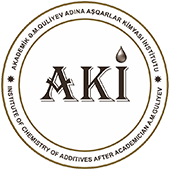Kaspersky Security Day was held today as part of InnoWeek – Innovation Week.
At the event, organized jointly by the Ministry of Transport, Communications and High Technologies and company Kaspersky, a keynote speech was delivered by head of Electronic Security Service Faig Farmanov. He noted that the Electronic Security Service under the Ministry of Transport, Communications and High Technologies regularly holds awareness-raising activities on the safe use of the internet. Thus, throughout the year, trainings and events are organized in various educational institutions to educate children, teachers and parents.
Then, Kaspersky’s specialists provided extensive information about the cyber threats faced by users in Azerbaijan, as well as the latest statistics.
It was noted that, according to anonymous statistics carried out by Kaspersky in Azerbaijan in January-September 2019, 42% of PC users in the country at least once encountered certain cyber threats. Many users have been exposed to threats of malicious software spread across various media, such as memory cards and hard disks. In addition, about 3% of mobile device users in Azerbaijan are exposed to malicious software.
In January-September, 13% of company employees in Azerbaijan experienced the malware attacks. For local threats, this indicator was more than 35%.
Over the past period, encryption and malicious programs have intensified. Thus, Kaspersky detected some 7.5 thousand of such malicious programs in the middle of last year (in the second quarter).
In the first 9 months of 2019, Kaspersky’s solutions prevented 388,000 attempts to direct internet users of the Azerbaijani segment to phishing pages.
“Hackers are constantly developing new attack methods, developing attack tools, and are looking for new categories of victims. Under the circumstances, cybersecurity is not a single and configured software, it is a continuous process that includes the use of security solutions, the integration of various expert services and training, an extensive analysis of the data flow and management of all system elements. In other words, today a multilevel approach to cybersecurity is important,” said Kaspersky’s official representative in Azerbaijan Mushfig Mammadov.
According to a study commissioned by Kaspersky, parents in Baku tend to limit their children’s online activities and worry about their cyber security, but at the same time they themselves often forget about elementary security measures.
Thus, 74% of parents participating in the survey said that they limit the time that their child can spend with a gadget. 85% of them always or when needed control what exactly their children do with the gadget and how they spend time on the internet. 72% of parents consider it ethical to control and track the content that children watch on the internet. It is curious that this indicator remains high even when the child reaches a fairly adult age: for example, half of the parents surveyed believe that the use of the device is normal for teenagers aged 15-18.
Meanwhile, parents themselves regularly post photos and videos of their children on social media accounts. The study showed that 55% of parents do this. However, only 22% of them obtain their children’s consent to post information about them on social networks. In addition to photographs, 19% of respondents often share stories from the lives of their children, 14% talk about the hobbies of their children, 18% provide information about their geolocation and 11% report about the educational institutions where their children study.
What’s more, the event discussed the basic rules that users should follow to protect against cyber threats.


